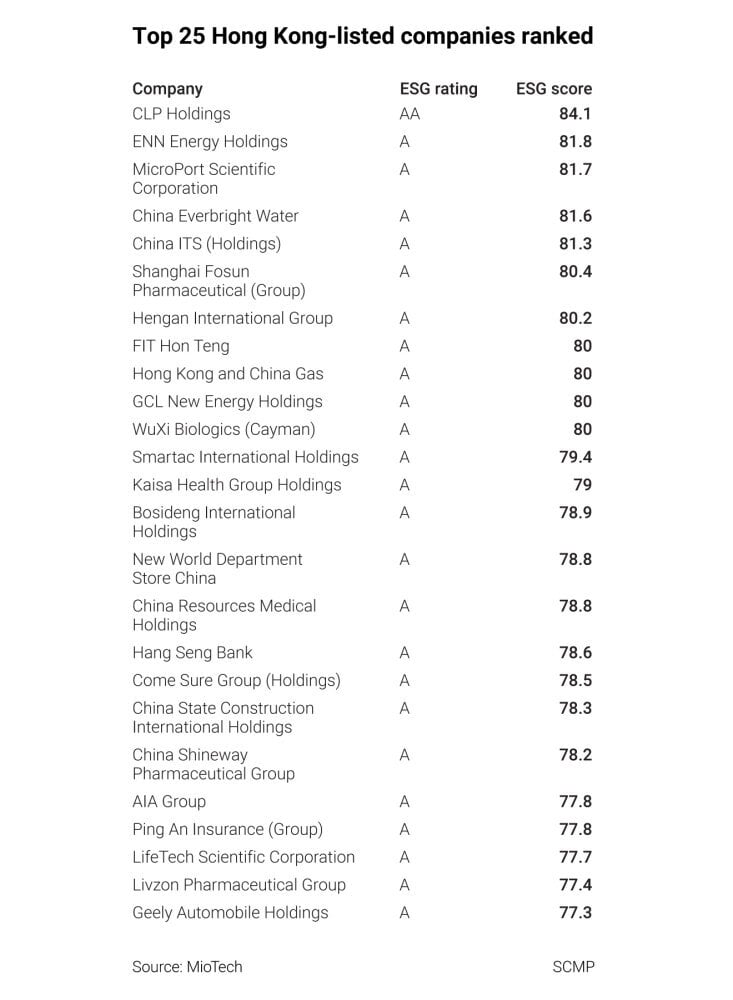


Yili Group and Huawei Technologies have been ranked top among Chinese companies for their commitment to hitting United Nations sustainable development goals, as the country increasingly shifts its focus towards environment, social and governance (ESG) efforts.
A hundred of the country’s 500 biggest private firms were listed in a report titled “2021 Hurun China Private Companies SDG Readiness 100” published by the Shanghai-based Hurun Research Institute on Monday. They were judged to be the companies most aligned with the UN’s 17 sustainable development goals (SDGs).
Dairy giant Yili, headquartered in Inner Mongolia, took the top spot for its commitments to biodiversity protection and poverty reduction. Huawei, the Shenzhen-based telecoms giant, was ranked second for its actions in fighting climate change and creating jobs.
Other companies to make the top 10 include China’s biggest home seller Country Garden, Pingan Insurance, internet giants Alibaba and Tencent, and electric vehicle maker BYD.
“Carbon neutrality and sustainable development have attracted global attention,” said Rupert Hoogewerf, chairman and chief researcher at privately held Hurun Report. “We hope this list can give some reference to Chinese private enterprises … and encourage more enterprises to consider sustainable development.”
It is the first report ever to focus on the sustainable development performance of Chinese private enterprises, according to Hurun Research.
China announced in September 2020 its dual goals of peak carbon emissions by 2030 and carbon neutrality by 2060. Attention to ESG and sustainable development have been on the rise as part of broader discussions about reducing environmentally harmful emissions.
Hurun assessed 500 of the most valuable private companies with headquarters in mainland China using public information from their annual reports, as well as ESG, and CSR (corporate social responsibility) reports. They picked the 100 with the highest scores to include in the rankings.

The scores are based on the UN’s 17 SDGs contained within a shared blueprint introduced in 2015 for for all of its member states. The 17 goals, which include 169 smaller targets, span many areas, including poverty and hunger reduction, education and gender equality, clean water and clean energy, and climate action.
The average score of the 100 companies is 33 out of 100, with the highest being 48 and the entry score being 24. Beijing hosts the most firms on the list, with 17 having headquarters in the city. Fourteen are based in Shenzhen, and 11 in Shanghai.
Some companies further down the league table still excelled in specific areas, according to Woogewerf. For example, Yadea, the Jiangsu-based e-bike company ranked 46 in the report, performed well in energy saving and emissions reduction. The energy consumption from producing a single Yadea bike dropped by 25 per cent year-on-year in 2020, with the greenhouse gas emissions declining by a third.
Internet giant Baidu, though ranked only 56th, aced in industry innovation for the number of artificial intelligence (AI) patent applications and authorisations it has achieved, according to Woogewerf.
Still, there is a long way to go for Chinese enterprises to fully address sustainability issues and disclose the relevant information in their non-financial reporting, according to Hurun.
“There is not a lot of available data, so it is not easy to make this list,” said Woogewerf.
The institute hopes to include more grading criteria in next year’s rankings, including the amount of donations per capita, the proportion of female executives, and the average salary levels of employees.
Legal notice about Intellectual Property in digital contents. All information contained in these pages that is NOT owned by eDairy News and is NOT considered “public domain” by legal regulations, are registered trademarks of their respective owners and recognized by our company as such. The publication on the eDairy News website is made for the purpose of gathering information, respecting the rules contained in the Berne Convention for the Protection of Literary and Artistic Works; in Law 11.723 and other applicable rules. Any claim arising from the information contained in the eDairy News website shall be subject to the jurisdiction of the Ordinary Courts of the First Judicial District of the Province of Córdoba, Argentina, with seat in the City of Córdoba, excluding any other jurisdiction, including the Federal.
1.
2.
3.
4.
5.
eDairy News Spanish
eDairy News PORTUGUESE
